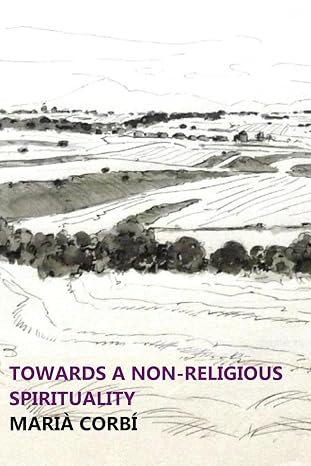We are facing one of the most profound periods of change in human history. This mutation is forcing us to be aware that we have to construct our systems and ways of life for ourselves, while rapid and frequent changes occur in our societies of continuous innovation. To be able to guide our future, we must investigate what is happening, as well as the consequences arising – in all fields of our life – from the economic, social, cultural and religious events that are taking place before our eyes. We have to study what is occurring in our societies in order to calibrate what is happening to the language of the religious traditions of the past and their age-old legacy. Attributing the crisis in religion to the breakdown of culture is one way of evading the serious problem. The cause of this situation has been the general evolution of culture and its consequences.
The Tasks of Axiological Epistemology

Axiological epistemology, or know-how on human axiological issues, must be based on our condition as animals. All living beings, as the creatures with needs that they are, interact with the environment in which they live in a way that is specific, sensory and axiological. We humans are no exception.
Axiological epistemology must account for of our unique nature as living creatures defined as such by their ability to speak. Speech is what makes us viable animals and, therefore, constitutes us as symbiotic living creatures. For our species, without symbiosis, there is no speech and, without speech, there is no symbiosis.
Language, which makes us viable symbiotic living creatures, forms the building block upon which we, as living creatures, are built. It is thus primarily and fundamentally axiological. Natural language, or language which has not become more sophisticated by means of abstract metalinguistic procedures, must be constructed with specific, sensory and axiological elements. In language everything is specific and qualitative, and our shaping of reality through use of language is wholly axiological.
Therefore, any other use of language, such as the scientific and technological metalanguages, or axiological metalanguages, (myths, axiological projects), must be explicable by means of the basic features of natural language and its aims.
The aim of natural language is to fill in the gaps left by the genetic programming of our species, and to shape our interpretation of ourselves and of the environment in accordance with our cerebral, sensory and behavioural structure, under specific survival conditions.
All forms of knowledge and feeling, ranging to the highest and noblest, must be explicable from our basic condition as a living creature with needs that speaks and is symbiotic. Everything stems from our condition as cultural living animals, and leads back, in one form or another, to this condition.
All human cognitive and axiological phenomena are necessarily rooted in this condition, and can be explained through it. Axiological epistemology must be able to give an account of the development of axiological systems, of human quality, of the sciences and the arts and of spirituality or profound human quality.
Bearing in mind our condition as speaking living creatures, axiological epistemology must account for our dual access to reality, that which is relative to our individual and collective needs and that which is unrelated to these, meaning the absolute, selfless reality. This dual access is the basic building block of our nature as speaking living creatures. It is thus a dual, axiological access.
It must be able to account not only for the biological functionality of our species, but also for this dual dimension. It must not be forgotten that this dual dimension is that of a living creature, in order to enable it to live. This is our basic makeup. It is what enables us to survive as individuals and, above all, as a species.
Axiological epistemology must make clear that, without this dual axiological dimension, the existence of human life, with its frequent and occasionally radical changes, and the existence of the sciences, the arts, philosophy and profound human quality, or what our ancestors referred to as spirituality, would be impossible.
Axiological epistemology will also need to account for the two types of epistemologies that have arisen in our species: mythical epistemology, which views our myths, theoretical narratives and our words as formulations of the actual nature of reality, and non-mythical epistemology, which recognises that what our linguistic formulations convey through myths, symbols, scientific theories and daily language is not how reality actually is, but how we should shape our realities in order to survive under specific cultural circumstances.
An important task for axiological epistemology is to give an account of how collective axiological systems were created in the past in pre-industrial societies (myths, symbols, rituals) in the context of the different pre-industrial modes of survival, as well as why and how such systems change when modes of survival in the environment undergo significant change.
We must study how religions come about and how they fell into crisis after pre-industrial societies underwent significant change.
Axiological epistemology must be able to give an account of the shifts that occur when pre-industrial modes of life disappear, and of the consequences of such drastic change for axiological systems, for religious crises and for the cultivation of the absolute dimension of our access to the real in a manner suited to the new cultural conditions.
It will need to study how to formulate collective projects in the new societies, which are based on knowledge, innovation and constant change. It must convey the urgent need to create collective axiological projects for societies that live from the continual creation of knowledge, technology, goods and services. The project creation process will be subject to continual review and modification, in order to keep pace with the growth of science and technology and the effects they have on the lives of individuals and communities.
The essential task of axiological epistemology is to provide axiological know-how capable of generating norms and procedures for the creation of collective axiological projects, in order to transmit them to all communities, changing them where necessary and in such a way that the changes will be readily accepted and painless.
It should focus on finding viable forms of widespread cultivation of the non-relative, selfless dimension of reality, without which human quality and, particularly, profound human quality, are impossible.
To achieve these aims, axiological epistemology must make detailed study of the great mythologies of the past, which were successful axiological projects tried and tested over thousands of years, in order to determine how our ancestors constructed these projects.
We must achieve an understanding of the structure of these pre-industrial axiological projects, with the help of linguistics, in order to determine how they were constructed, which laws they obeyed, what their formal parameters were, what their basic structures or axiological paradigm were and the relationship of this paradigm to the group’s survival systems.
The aim of such studies is to acquire know-how on the axiological that is within the grasp of society, to enable it to create the axiological projects it needs at its various levels of collective organisation and action.
Axiological epistemology must also make a detailed study of the features of the absolute dimension of our access to reality, how it was cultivated, tackled and expressed in the past along axiological lines: how our ancestors delved into it, what procedures they used in order to do so, what the nature of these procedures was, and how we should do so in the new societies, without beliefs, religions or gods.
We will need to study how to use the legacy of the past in this sphere, despite the fact that we are unable to live as our ancestors did or to think, feel, believe, act or organise ourselves as they did. We will need to study how we, as a community, can cultivate our access to the real, under our own cultural circumstances and without aspiring to partially or entirely ignore these circumstances. The whole of what was considered the realm of spirituality by our ancestors must become the realm of axiological epistemology for us today.
This epistemology must try to pinpoint, as precisely as possible, the two types of formal parameter: the parameters of abstract know-how, including science, i.e. logic, and the parameters of the specific, sensory and axiological, i.e. specific or semiotic logic.
It must give an account of why we now need an axiological epistemology that was not necessary in the past, and what roles it should fulfil in the new industrial societies.
Axiological know-how must be free of any and all axiological submission. It needs to be abstract know-how. It cannot be based on any belief system, or on any ideological system. Epistemologists can believe whatever they wish, or pursue whichever axiological alternative they desire, but not when practising axiological epistemology. Submission to an axiological system impedes the freedom and flexibility needed in a society of innovation and continual change.
Those who engage in axiological epistemology and those involved in the creation of projects must have freedom of feeling. Under the new cultural conditions, axiological alternatives are possible but axiological submission is not, as a perpetual willingness for change is essential.
This axiological know-how, and the freedom that must accompany it, is imperative in the new type of society. The same attitude required of axiological epistemologists must be held to some degree by all other members of the new societies. Axiological freedom, creativity and flexibility are the qualities required in knowledge societies.



